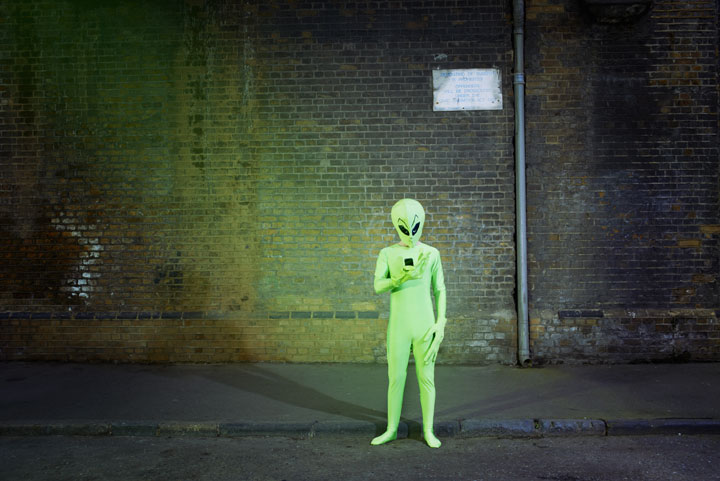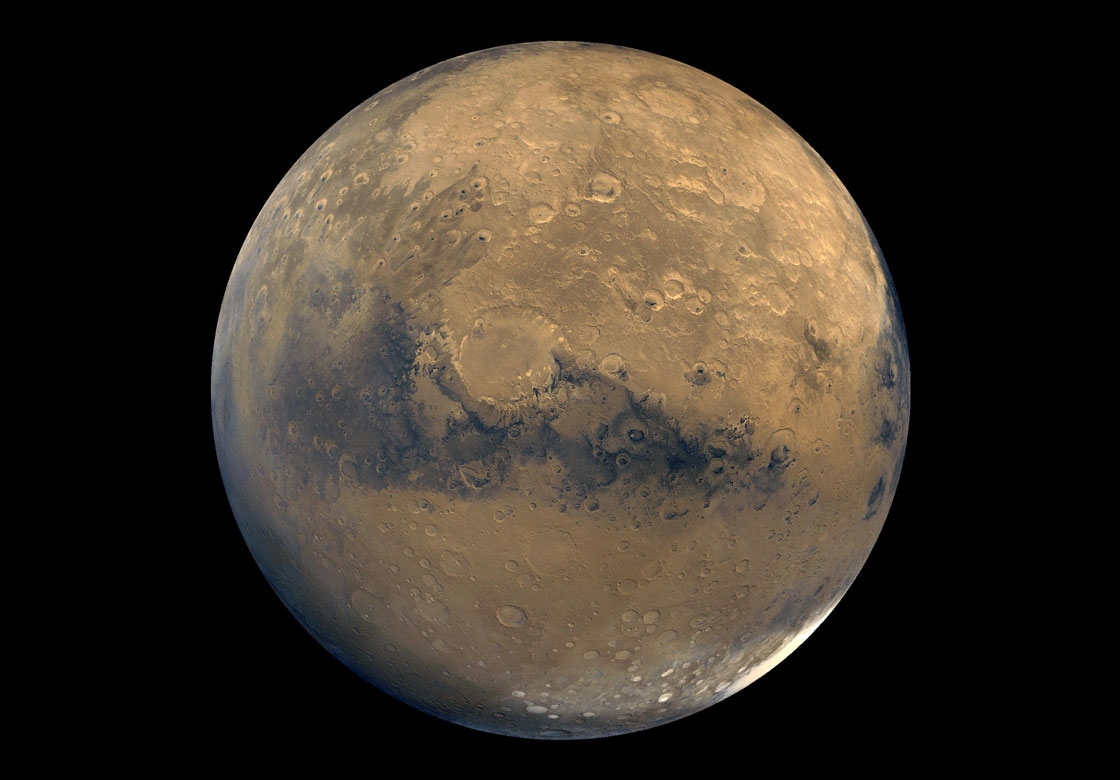TORONTO – It turns out we shouldn’t be worried about an invasion from Mars — it could be our home planet.

There has long been debate about how life started on our planet. Several theories involve a comet or asteroid with water slamming into Earth, thus bringing the necessary ingredient to support life: water. But how primitive life started from there isn’t fully understood by scientists.
A theory suggests that Mars had microbial life and, after another large body slammed into it, pieces of it travelled across space, eventually reaching Earth, seeding our planet with microbes where they thrived in our environment. We know that this collision took place as there have been Martian meteorites found on Earth. (The belief that primitive forms of life could survive the vacuum of space and travel between planets is called panspermia.)
Now, a research professor believes that he has found evidence to support that theory.
Read: Canadians line up for one-way Mars mission
Professor Steven Benner of the Westheimer Institute for Science and Technology told geochemists at the annual Goldschmidt conference on Thursday that an oxidized mineral form of the element molybdenem could have only come from Mars. Molybdenem may have been crucial to the origin of life.
Although all living things are comprised of living matter, just adding energy or heat doesn’t create life. Instead, they would turn into something like tar, oil, or asphalt.
However, Benner added that adding a mineral like molybdenem would curb that process.
“It’s only when molybdenum becomes highly oxidized that it is able to influence how early life formed,” said Benner. “This form of molybdenum couldn’t have been available on Earth at the time life first began, because three billion years ago the surface of the Earth had very little oxygen, but Mars did. It’s yet another piece of evidence which makes it more likely life came to Earth on a Martian meteorite, rather than starting on this planet.”
“Certain elements seem able to control the propensity of organic materials to turn into tar, particularly boron and molybdenum, so we believe that minerals containing both were fundamental to life first starting,” said Benner. “Analysis of a Martian meteorite recently showed that there was boron on Mars; we now believe that the oxidized form of molybdenum was there too.”
Another argument Benner presented was that water — which would have been plentiful on Earth at one point — would have prevented enough boron from forming. Water is corrosive to ribonucleic acid (RNA), which scientists believe was the first molecule to appear on Earth. Although early Mars would also have had water, it would have covered a smaller area of the planet.
“The evidence seems to be building that we are actually all Martians; that life started on Mars and came to Earth on a rock,” said Benner. “It’s lucky that we ended up here nevertheless, as certainly Earth has been the better of the two planets for sustaining life. If our hypothetical Martian ancestors had remained on Mars, there might not have been a story to tell.”



Comments